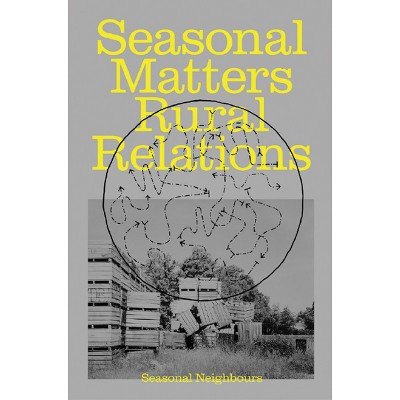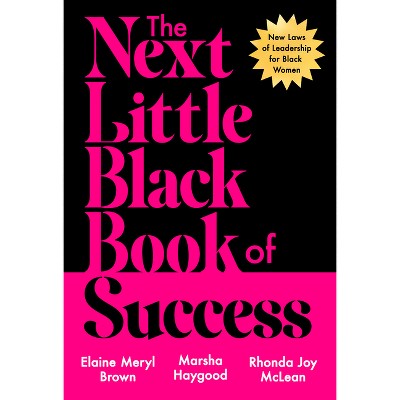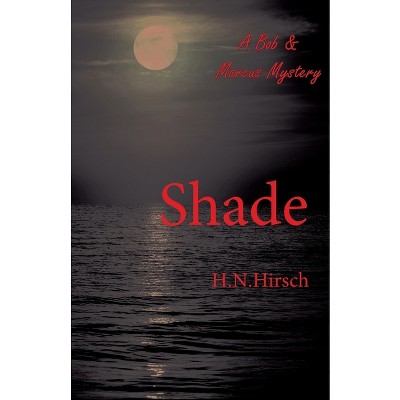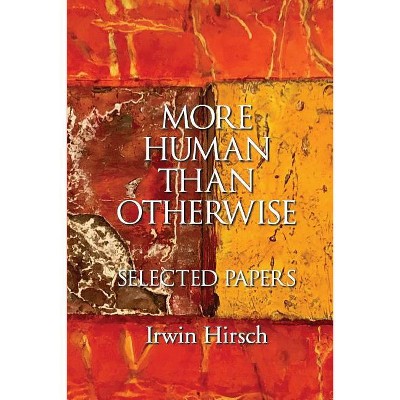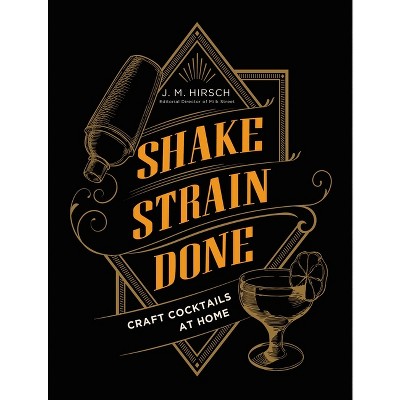Sponsored

Pulp Empire - by Paul S Hirsch
$33.00
Out of Stock
Eligible for registries and wish lists
Sponsored
About this item
Highlights
- Winner of the Popular Culture Association's Ray and Pat Browne Award for Best Book in Popular or American Culture In the 1940s and '50s, comic books were some of the most popular--and most unfiltered--entertainment in the United States.
- About the Author: Paul S. Hirsch is a visiting research affiliate at the Institute for Historical Studies in the Department of History at the University of Texas at Austin.
- 344 Pages
- History, United States
Description
About the Book
"Paul Hirsch's revelatory book opens the archives to show the complex relationships between comic books and American foreign relations in the mid-twentieth century. Scourged and repressed on the one hand, yet co-opted and deployed as propaganda on the other, violent, sexist comic books were both vital expressions of American freedom and upsetting depictions of the American id. Hirsch draws on previously classified material and newly available personal records to weave together the perspectives of government officials, comic-book publishers and creators, and people in other countries who found themselves on the receiving end of American culture"--Book Synopsis
Winner of the Popular Culture Association's Ray and Pat Browne Award for Best Book in Popular or American Culture In the 1940s and '50s, comic books were some of the most popular--and most unfiltered--entertainment in the United States. Publishers sold hundreds of millions of copies a year of violent, racist, and luridly sexual comics to Americans of all ages until a 1954 Senate investigation led to a censorship code that nearly destroyed the industry. But this was far from the first time the US government actively involved itself with comics--it was simply the most dramatic manifestation of a long, strange relationship between high-level policy makers and a medium that even artists and writers often dismissed as a creative sewer. In Pulp Empire, Paul S. Hirsch uncovers the gripping untold story of how the US government both attacked and appropriated comic books to help wage World War II and the Cold War, promote official--and clandestine--foreign policy and deflect global critiques of American racism. As Hirsch details, during World War II--and the concurrent golden age of comic books--government agencies worked directly with comic book publishers to stoke hatred for the Axis powers while simultaneously attempting to dispel racial tensions at home. Later, as the Cold War defense industry ballooned--and as comic book sales reached historic heights--the government again turned to the medium, this time trying to win hearts and minds in the decolonizing world through cartoon propaganda. Hirsch's groundbreaking research weaves together a wealth of previously classified material, including secret wartime records, official legislative documents, and caches of personal papers. His book explores the uneasy contradiction of how comics were both vital expressions of American freedom and unsettling glimpses into the national id--scourged and repressed on the one hand and deployed as official propaganda on the other. Pulp Empire is a riveting illumination of underexplored chapters in the histories of comic books, foreign policy, and race.Review Quotes
"Pulp Empire's seven chapters move chronologically and thematically through the checkered history of propaganda comics from World War II through the Cold War. Across these chapters, Hirsch balances coherent historical narrative with sharp close readings of a deep archive of familiar commercial and obscure governmental comics--and selfishly I often found myself wanting to hear even more about several comics throughout. Sharpening these analyses, and what readers will notice long before
they read the arguments within, are visually stunning full-page and half-page color illustrations of comics and archival materials throughout that make Pulp Empire a truly beautiful academic monograph."--Vincent Haddad "Criticism"
"[Pulp Empire] makes a strong contribution to the fields of US imperialism, Cold War popular culture, and the ugly history of racial caricature in comics. It also demonstrates how all histories are global histories if we look outside the panels."-- "Pacific Historical Review"
"A highly accessible book, carried by wry prose and well-positioned analysis of a lavish selection of comics panels and covers from DC, Timely/Marvel, EC, and others--all in vibrant color. . . . Pulp Empire demonstrates that comics evolved in lockstep with the expansion of the United States and the global communities it helped create."-- "Journal of American Culture"
"A thought-provoking and perspective altering history of the American comic book as both a cultural and imperial force. . . . Pulp Empire is beautiful and glossy and more than worthy of the visually stunning and often disturbing comics it comments on."-- "H-War"
"An extraordinary book that reveals just how heavily the federal government relied upon comic books to disseminate ideological messages, even as many politicians targeted them as a threat to morals at home. . . . A superb book about American cultural propaganda, one that deserves a wide audience and hopefully will spur additional research on this underaddressed aspect of American cultural diplomacy during the Cold War."-- "Canadian Military History"
"Stuart L. Bernath Book Prize, honorable mention.Pulp Empire is a beautiful, unique, and provocative book. Turning to comic books as a revealing source for popular culture and policy in the Cold War, Hirsch captures the nightmares, hopes, and dreams of countless citizens in a nuclear world. In his close analysis, comic books are both projections and promoters of core beliefs about conflict and power. With their reach among diverse readers, the comic books set the discursive boundaries for many discussions about good and evil, as well as strong and weak, in a time of transition for formerly isolationist Americans. Hirsch's book blends cultural analysis with discussions of gender, race, and nationalism. His book opens many valuable perspectives on the complex sources of Cold War thinking."
-- "Society for Historians of American Foreign Relations"
"An ambitious work. . . Enormously enjoyable. . . To his credit, Hirsch pulls no punches in identifying racism as one of the linchpins of the pulp empire."-- "Passport"
"Vivid, lurid. . . Pulp Empire is an important addition to the growing library of books that are "serious" about comics. . . . A must read for both scholars and fans."-- "St. Louis Jewish Light"
"Pulp Empire is filled with fascinating anecdotes and incisive analysis of the ephemera of US empire. This book offers something for an array of audiences from fervent comic book fans to historians of American foreign policy. Hirsch deftly deals with several dimensions of comics' hidden history from their perpetuation of racist and sexist tropes to their use as a unique tool of soft-power popular abroad across class lines. Finally, Hirsch's analysis of the debates over the atomic age played out in comic book pages proves both entertaining and enlightening. Pulp Empire effectively interrogates the intersection between politics and popular culture and profiles how superheroes have been deployed to serve American expansionist goals."-- "Not Even Past"
"Hirsch's book is beautifully, evocatively written and--with its full-page color illustrations and gorgeous production value--will easily appeal to general audiences soaked in contemporary comic book culture. . . . Pulp Empire is an essential read for the current moment of reckoning in American culture, revealing how these issues shaped a business that has now, in the age of DC and Marvel blockbusters, become synonymous with America on the world stage."-- "International Journal of Communication"
"Vividly illustrated and enjoyably hyperbolic, Pulp Empire tells its tale as a kind of horror comic. . . . Like any self-respecting superhero movie, it deserves a sequel. "--J. Hoberman "The Nation"
"Hirsch in Pulp Empire for the first time analyzes the massive cultural and political potential of the comic book for world history. . . . Pulp Empire is an intriguing title that will find its way into many comic books studies libraries, and it is also of interest for students of American Studies and criminology."-- "Pop Culture Shelf"
"A remarkable volume, very rich and unique in the depth of research, attractive in design, highly-revealing and full in content, and crisp and pleasurable in readability."-- "International Journal of Comic Art"
"Elegantly written and lavishly illustrated, the tome documents the author's deep dive through the creepy archives of the United States government. . . . It's a lurid, fascinating tale, narrated with pep and grace."-- "The Lowbrow Reader"
"As Hirsch outlines in Pulp Empire, comics have always been entwined with capitalism, race, and foreign policy. . . . Hirsch makes an important inroad into not only understanding the cultural politics of the Cold War, but in the forces that led to the omnipresence of comic book motifs in the present."-- "The Progressive"
"Every so often, a single book changes our understanding of an entire topic. Hirsch's brilliant, artfully written Pulp Empire does that for mid-twentieth-century American studies. The billions of comic books that rolled off American presses and circumnavigated the globe in the 1940s and '50s reveal significant unexplored aspects of American society, politics, and foreign policy. While Hirsch's spectacular research introduces American historians to a new field of study, his elegant writing invites a broad audience to read this unique and beautifully produced book."-- "Martin J. Sherwin, Pulitzer Prize-winning coauthor of American Prometheus and author of Gambling with Armageddon"
"It has been a long time since I read a history of comic books that genuinely brought significant new issues and sources to the table. Pulp Empire is such a book--smart, lively, and well-written. Hirsch positions the early decades of the American comic book in a global context and illuminates the anxieties this powerful new form of popular culture inspired not only in parents and cultural critics but also in government officials and world leaders."-- "Jared Gardner, author of Projections: Comics and the History of Twenty-First-Century Storytelling"
"I'll be frank: I love this book. Hirsch's writing is crisp and exciting and it's a joy to see the history of comic books and the Cold War United States told from such a fresh angle. This fun, sharp book is one I'll be thinking about for a while."-- "Daniel Immerwahr, author of How to Hide an Empire: A History of the Greater United States"
About the Author
Paul S. Hirsch is a visiting research affiliate at the Institute for Historical Studies in the Department of History at the University of Texas at Austin. His work has received major support from organizations including the Robert B. Silvers Foundation, the National Science Foundation, and the Library of Congress.Dimensions (Overall): 9.3 Inches (H) x 6.3 Inches (W) x 1.5 Inches (D)
Weight: 2.35 Pounds
Suggested Age: 22 Years and Up
Number of Pages: 344
Genre: History
Sub-Genre: United States
Publisher: University of Chicago Press
Theme: 20th Century
Format: Hardcover
Author: Paul S Hirsch
Language: English
Street Date: July 12, 2021
TCIN: 1006097399
UPC: 9780226350554
Item Number (DPCI): 247-41-4376
Origin: Made in the USA or Imported
If the item details aren’t accurate or complete, we want to know about it.
Shipping details
Estimated ship dimensions: 1.5 inches length x 6.3 inches width x 9.3 inches height
Estimated ship weight: 2.35 pounds
We regret that this item cannot be shipped to PO Boxes.
This item cannot be shipped to the following locations: American Samoa (see also separate entry under AS), Guam (see also separate entry under GU), Northern Mariana Islands, Puerto Rico (see also separate entry under PR), United States Minor Outlying Islands, Virgin Islands, U.S., APO/FPO
Return details
This item can be returned to any Target store or Target.com.
This item must be returned within 90 days of the date it was purchased in store, shipped, delivered by a Shipt shopper, or made ready for pickup.
See the return policy for complete information.
Frequently bought together

Discover more options

$25.36
was $40.00 New lower price
5 out of 5 stars with 5 ratings



